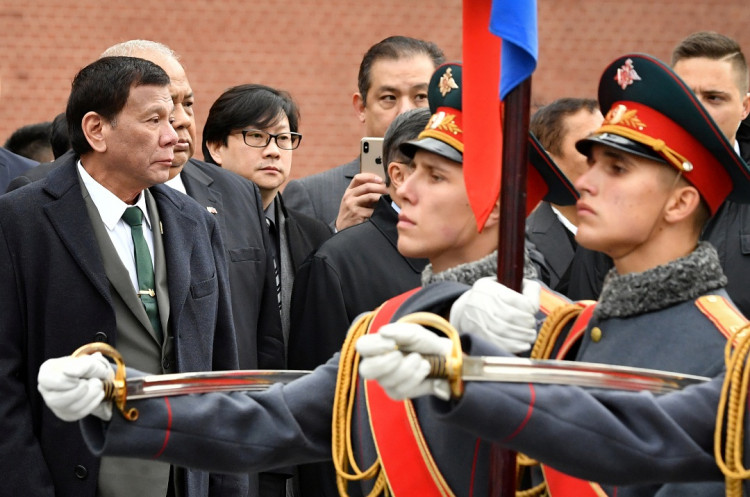The Philippines has reportedly invited Russia to form a partnership with it for gas and oil exploration projects in the contested waters of the South China Sea. The invitation, however, does come with a number of caveats given Russia's relationship with China and the former's claims over the waters and its resources.
Political analysts have stated that Russia is unlikely willing to upset its relationship with China, despite the massive opportunity presented to it by the Philippines. Nevertheless, the invitation could further complicate the situation within the contested waters, which is estimated to contain up to $2.5 trillion in energy reserves.
During Philippine President Rodrigo Duterte's visit to Moscow last week, he reportedly asked Russia's state oil giant Rosneft to consider a partnership with the country to set up operations in the South China Sea. Duterte reportedly gave the invitation to Rosneft directors and its chief executive, Irgo Sechin.
Philippines presidential spokesman Salvador S. Panelo confirmed with reporters that Duterte did, in fact, ask leaders of Russia's oil sector to invest in the Philippines.
The invitation was for the Russian companies to establish oil and gas developments in the contested waters. Duterte reportedly assured them that their investments would be safe and that he would not tolerate corruption in the bureaucracy.
Prior to the meeting, the Philippines' ambassador to Russia, Carlos Sorreta, had mentioned that the Russian energy companies were interested in investing in the country, particularly in oil and gas developments. Sorreta clarified that any such investments are within Philippines rights within the region.
Russia's involvement in the contested waters has become an increasing concern for China since July. During that month, a stand-off between Chinese and Vietnamese vessels had occurred.
Chinese state-owned survey ship Haiyang Dizhi 8 reported attempted to block the construction of an oil rig off the coast of Vietnam, which was partly owned by Russia's Rosneft. Apart from the Philippines and China, Southeast Asian countries such as Vietnam, Malaysia, and Brunei all have overlapping claims in the region.
Following the encounter, China demanded that Vietnam halt its exploration project with foreign companies. Last year, Vietnam was also forced by China to halt drilling operations in the contested waters, a project which was in cooperation with Spanish oil giant Repsol.
Despite China's warning, Russia's Rosneft remained undeterred and continued on its joint operations with Vietnam. Some analysts have speculated that Vietnam may have intentionally partnered with Rosneft as a strategy to put pressure on China. According to political experts, China will likely not be able to push away the Russian company as easily as it did Repsol if it were to pursue its projects.






